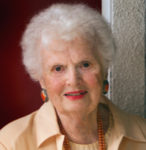Recognizing them encourages diversity
By Natasha Josefowitz, ACSW, Ph.D.

LA JOLLA, California — The newspapers have been discussing the new tribalism as evident in our contentious politics. We are increasingly nationalistic in our ways and more opposed to others’ points of view. We embrace the attitude: Only I am right, and the rest of you are wrong. Only my tribe—political party, religious group—is right. Political and religious tribes are the ones most likely to promote conflict. Non-members of the tribe are disrespected and all too often fought.
According to Joshua Greene in his book Moral Tribes, humans have innate tribalistic tendencies. Once we are a tribe member, we favor in-group members over outside-of-group members, which can lead to strife. Ethnocentrism is a universal human tendency: my tribe is better than your tribe.
Many wars all over the world from time immemorial have been about eradicating other tribes. In these days of more exclusionary tribalism, it might be worth our while to find commonalities with people from other tribes and thus forge connections with those we formerly saw only as “other.”
Tribes consist of groups of people linked by social, economic, religious, artistic, or political ties with a common culture. This makes me wonder about the number of tribes we all belong to and how we recognize that affiliation. When I travel to a foreign country and am surrounded by natives and an American appears on the scene, I am happy to see a person from my country and will always go up and start a conversation. I belong to tribes of academics, retirees, secular Jews, writers, feminists, etc.
I started thinking about which of the people I encounter that I feel I share a familiarity with. When I meet a French-speaking person from France or Switzerland, I immediately feel a rapport; the same holds true for people who speak Russian. When I meet a psychologist, I know I will share another sort of common language. University professors are another group I belong to, as well as people who are in their nineties.
When I saw a friend of mine crying recently because her dog had just died, I realized that I belong to a tribe of people who have loved and lost a pet, so I could immediately relate to her pain and was able to be supportive. I am also part of a sad tribe of people who have lost a child.
When I was a young mother, I belonged to a tribe of other mothers with young children, and now I belong to a new tribe of great-grandmothers with whom I share photos of my four great-grandsons. I belong to a tribe of widows, a tribe of former skiers and horseback riders, and, of course, I am a member of a tribe of all the people living in my retirement community.
What does all this mean? It means I am at ease interacting with people who share a part of who I am or was. There is familiarity, which is comforting. I am not alone writing poetry; I can share some of the woes and joys with another person who writes verse, too. I am happy when I meet someone who went to my alma mater, Scripps College, or who received their advanced degree at the age of fifty.
All these commonalities feel good, whether you are part of a tribe of churchgoers, bridge players, or singers. There is recognition that “we are not alone” and the desire to belong to a group is part of our DNA. Even meeting someone who mentions that a favorite book growing up was the same as mine gives me a surge of pleasure at the connection.
All the tribes I have described so far are affiliations due to some recognizable commonalities, through interests, geography, language, nationality, gender, education, work, history, etc. These are tribes we connect with spontaneously.
While there are many personal benefits to this sense of inclusion we feel when we identify our groups, there are also negative repercussions to others and our society when we work to maintain these boundaries between groups. Being exclusionary can wreak havoc on the opportunities available to people outside our tribes, support the continuation of inequities and injustices, and, at its worst, cause us to dehumanize others. The acknowledgement of tribalism can help us identify where it becomes dysfunctional and where integrating members of different tribes is the road to survival in a democracy.
Take a few minutes and identify some of the tribes you belong to. Make a point of recognizing the pleasure of knowing each other, sharing mutual interests, lifestyles, loves, and the joys of belonging. It is also vital to reach out to other tribes to preserve our shared humanity, to recognize that ultimately all people are part of the tribe of humans.
© Natasha Josefowitz. This article appeared initially in the La Jolla Village News. You may comment to natasha.josefowitz@sdjewishworld.com